The trouble started more than a week ago. Chris Christie was three days into his presidential campaign on July 2, yet he kept getting thrown off message with questions about Donald Trump. The New Jersey Governor, known for his attitude and bombast, flashed a frustrated glare at reporters. “I’ve said this now about eight or nine times. I’ll say the same thing again,” he said on the street in downtown Nashua between campaign stops. “The comments were inappropriate.” That much was clear.
What remained less so for Christie and the rest of the GOP field was whether the questions about the reality television star-turned-presidential candidate would ever stop. In the days that followed, something like the opposite has happened. Trump has risen from petty distraction to campaign sensation, rising near the top of national and early-state polling on the backs of his universal name recognition, a platform appealing to the GOP fringes, and a steady stream of inflammatory comments.
This has led campaigns and Republican leaders to rethink their response to Trump. Initial efforts to ignore him have failed, daily denunciations of him have only increased his visibility, putting him into first place in the GOP field according to one online-only poll sponsored by YouGov and The Economist. A candidate that many Republicans long courted for his megaphone and populist following now threatens to tar the larger party with comments about rapists and criminals flooding over the southern border.
“The first rule of politics when you’re in a hole is to stop digging,” Sen. Lindsey Graham said at the Atlantic Council on Wednesday. “Someone needs to take the shovel out of Donald Trump’s hands.”
And many of Trump’s rivals are gearing up to do just that.
One strategy that is growing in favor is to treat him like any other candidate, and using his well-documented record of inflammatory, contradictory, and unorthodox statements against him. Trump has said he loves Hillary Clinton, was pro-choice and pro-same-sex marriage—just a few examples of comments that his supporters would find objectionable. In 1999, Trump proposed a one-time “net worth” tax on the wealthy to wipe out the national debt.
Other candidates are taking on Trump head-on, hoping for a slice of the media fracas. Former Texas Gov. Rick Perry released a video this week making his opposition to Trump personal. “Hey Donald, I saw your tweet the other day, but I think you might need to borrow my glasses to get a good look at the steps I took to secure the border while I was governor of Texas,” Perry said.
“Your comments about Mexicans are offensive and they don’t reflect the values of the Republican Party,” he added.
See the 2016 Candidates' Campaign Launches
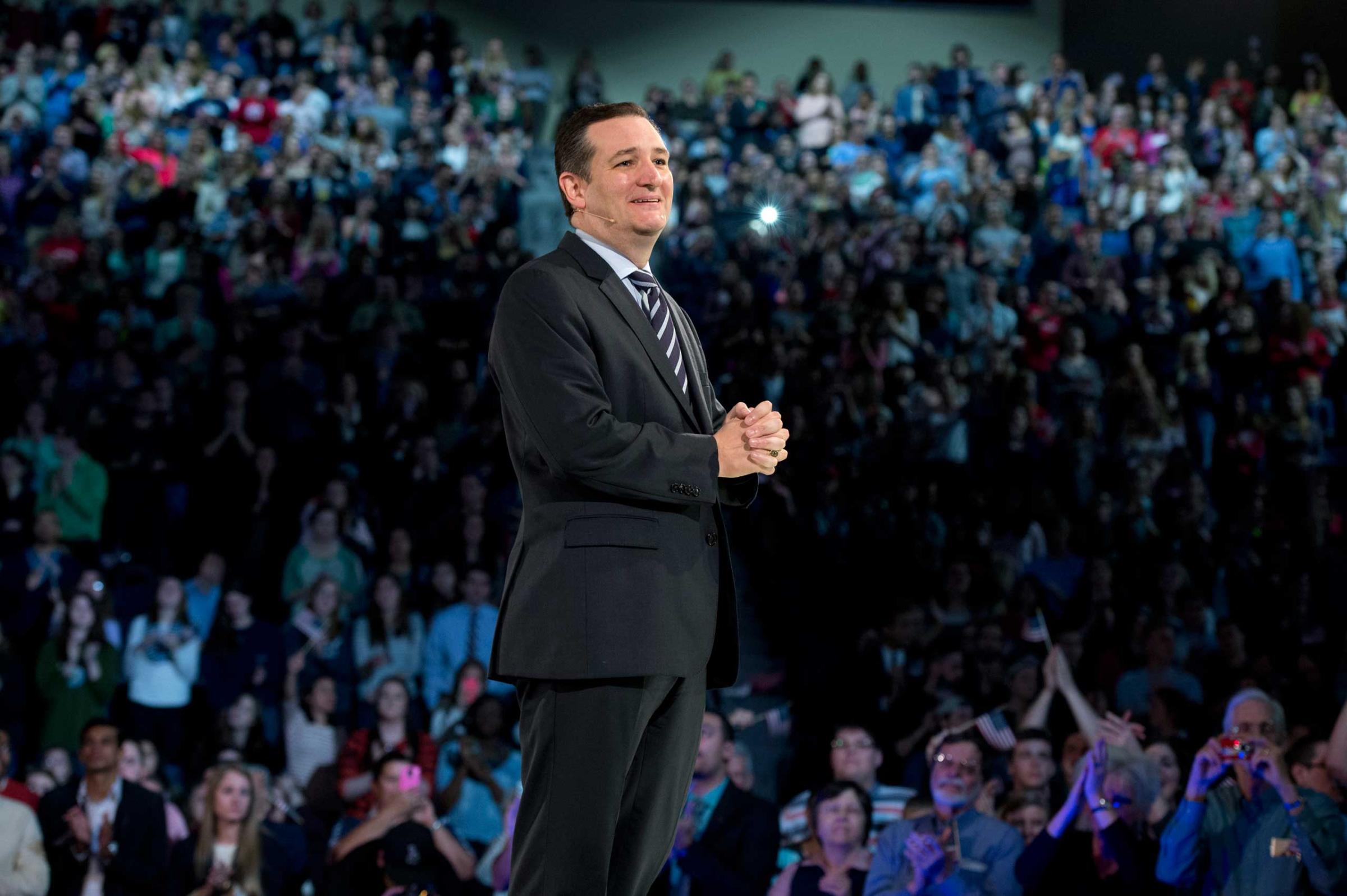
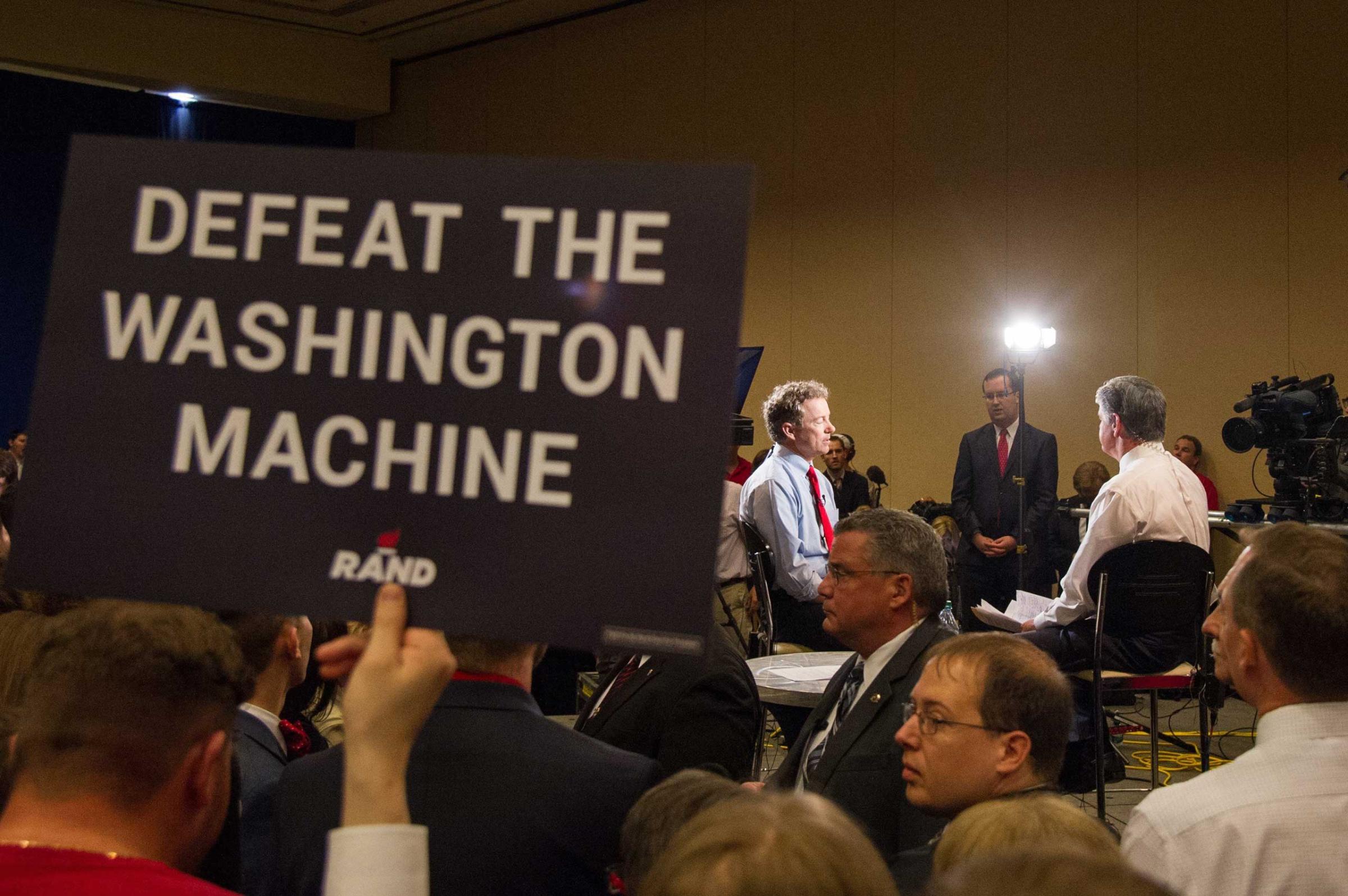

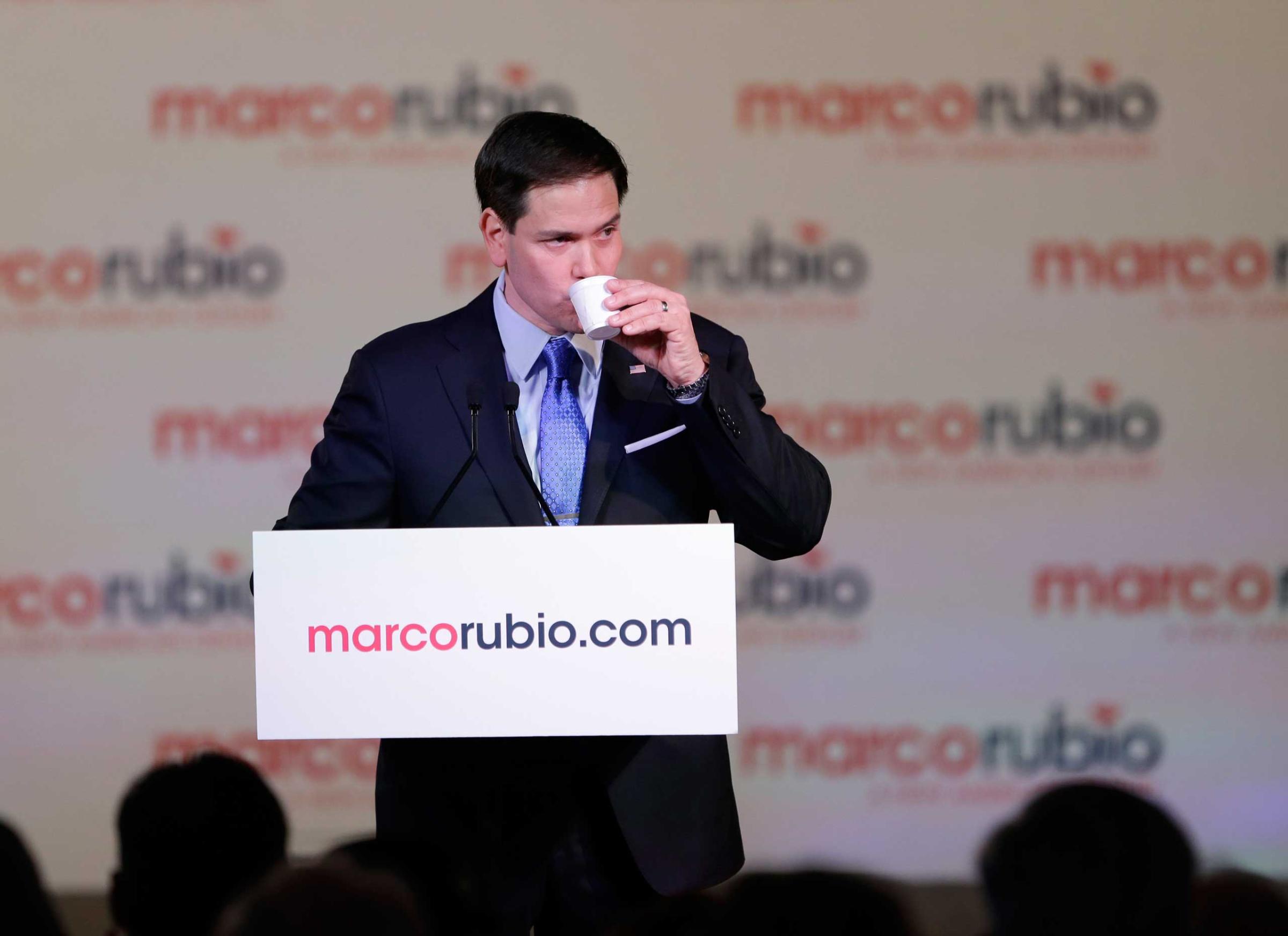
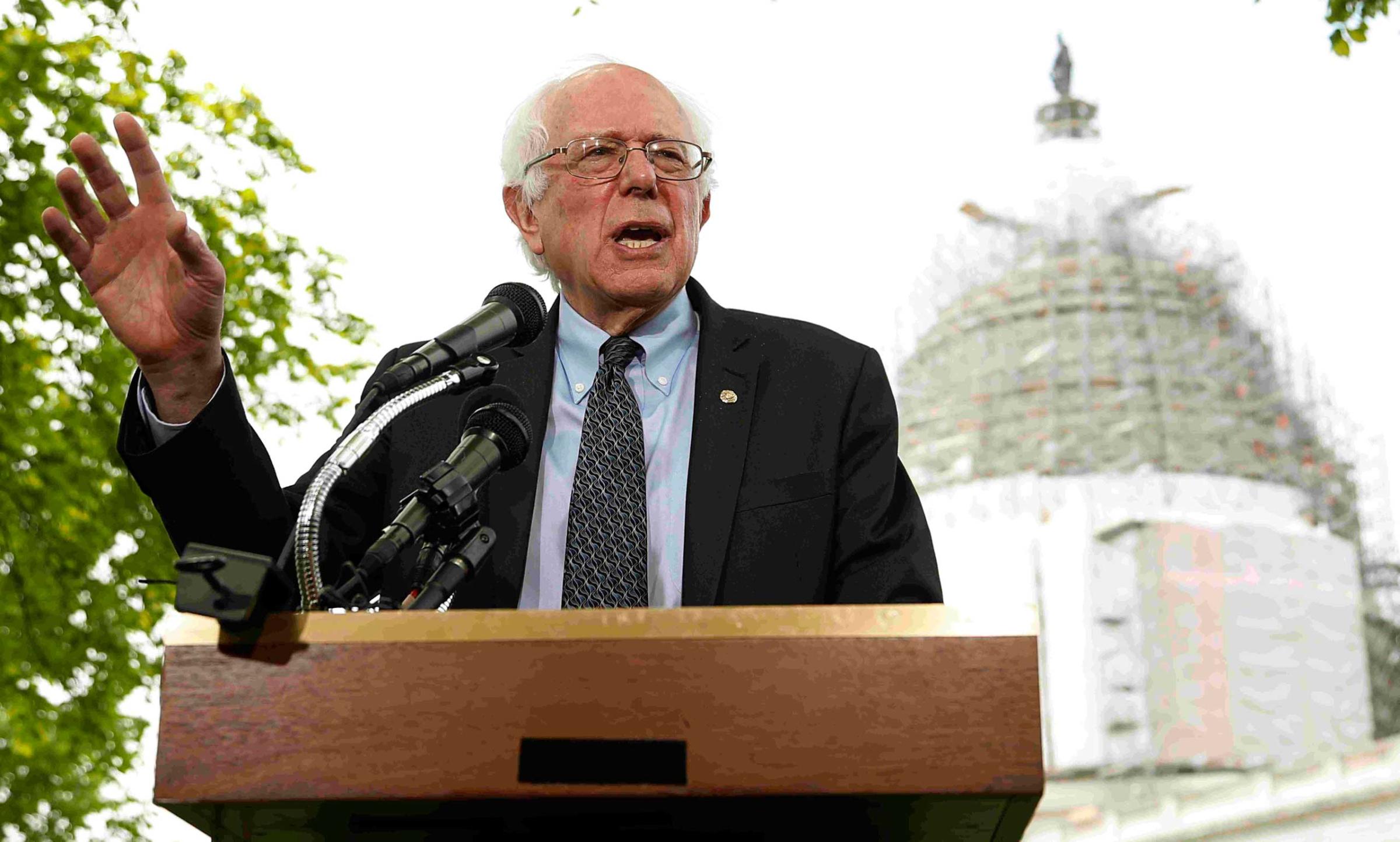
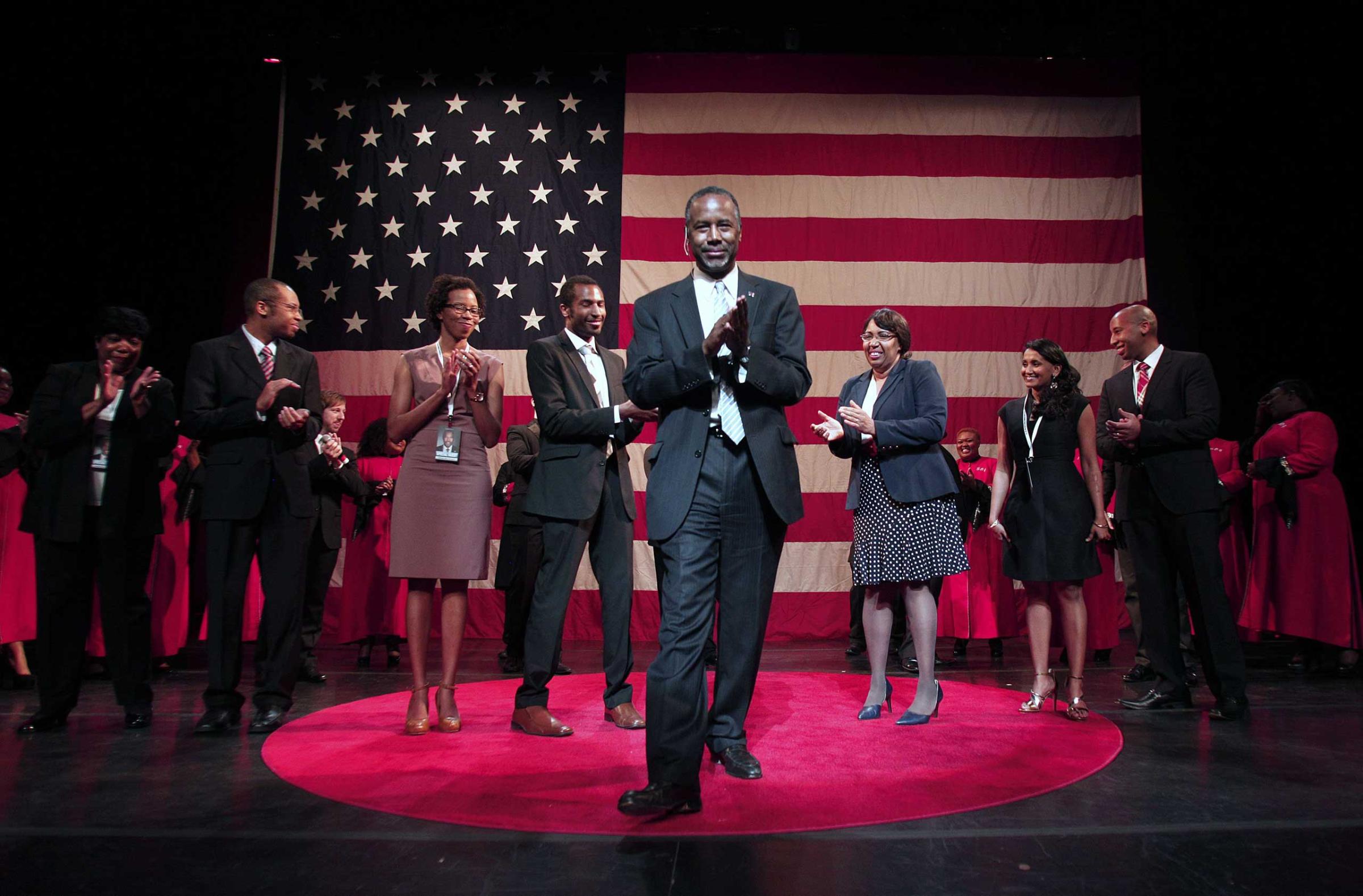
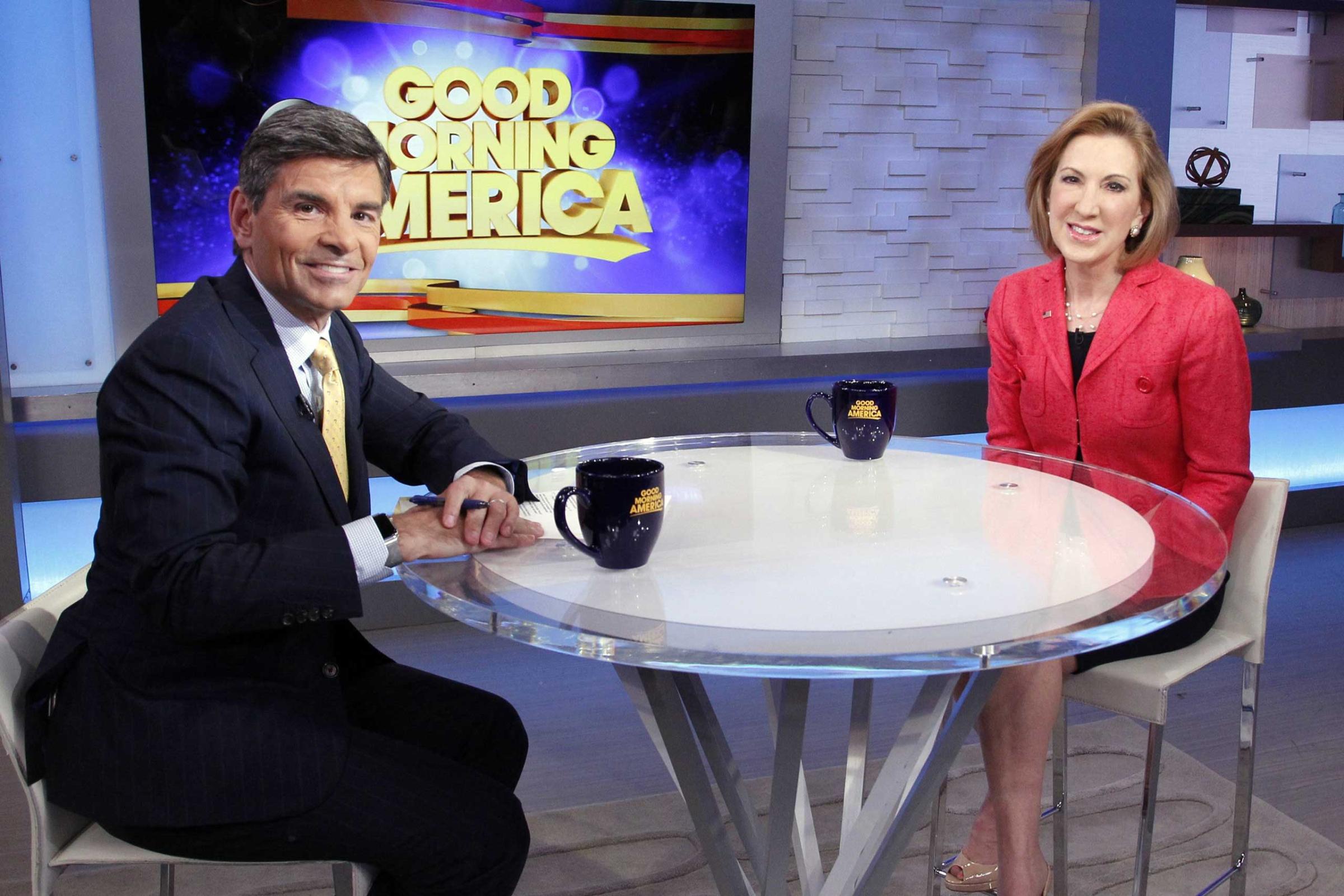
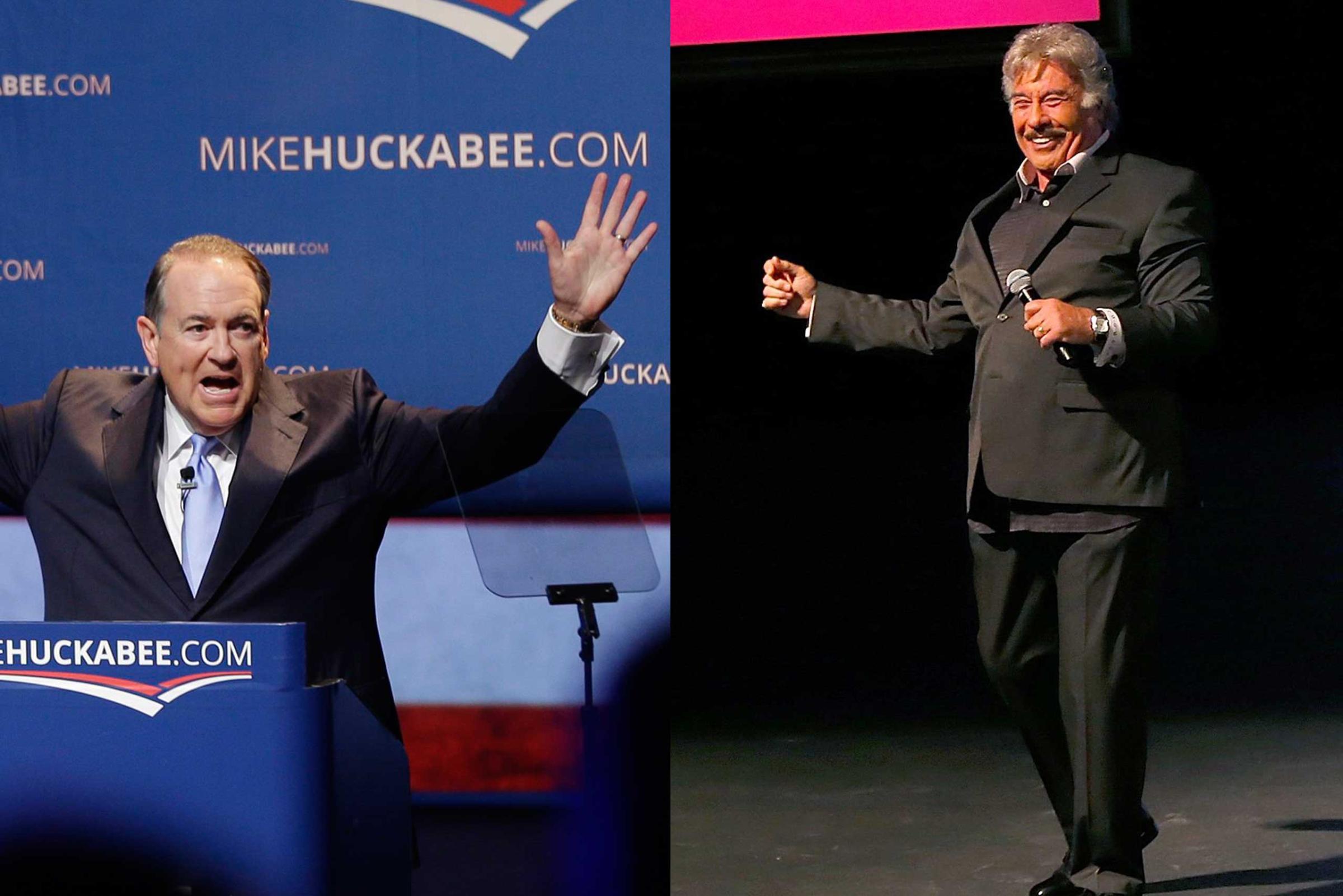
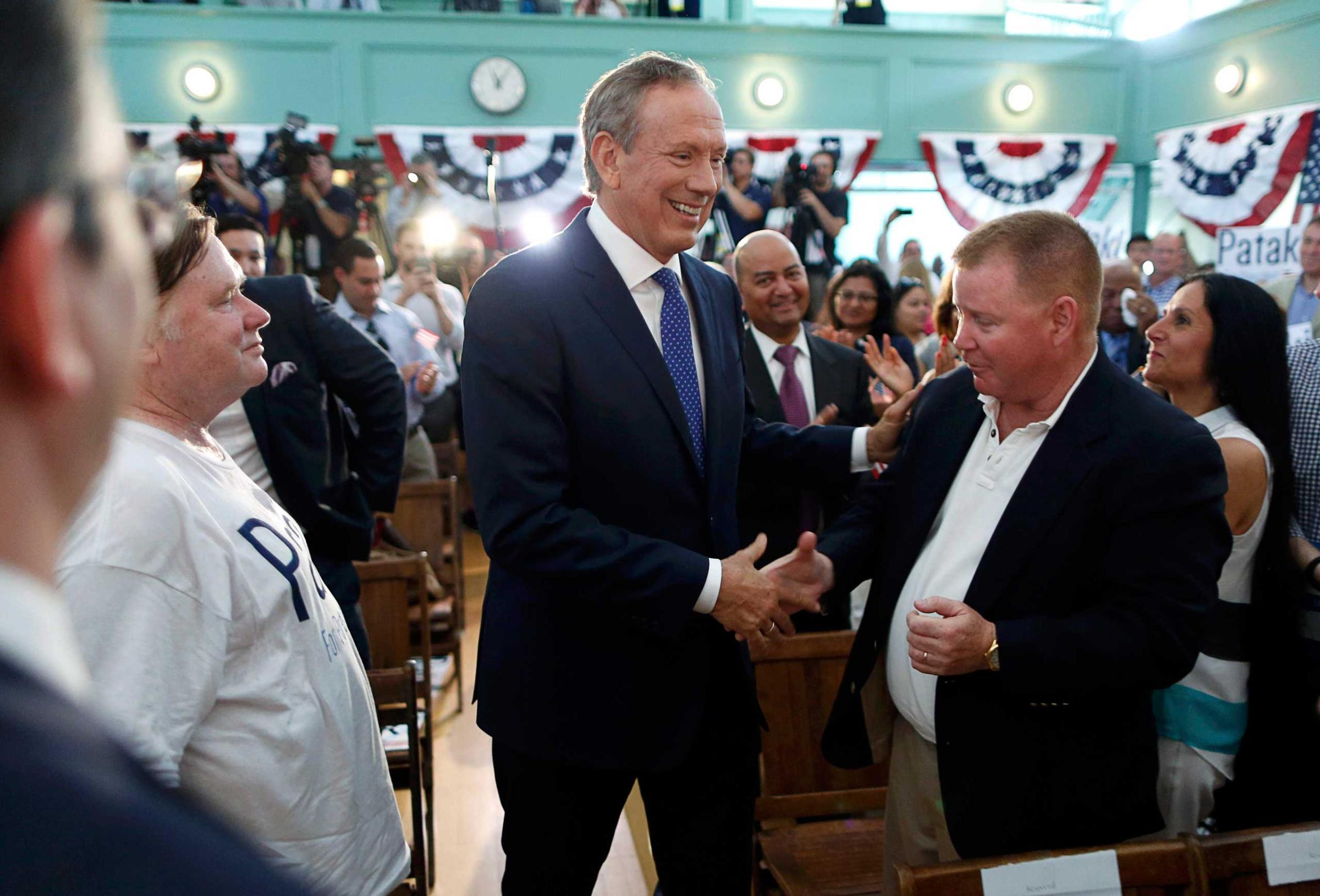
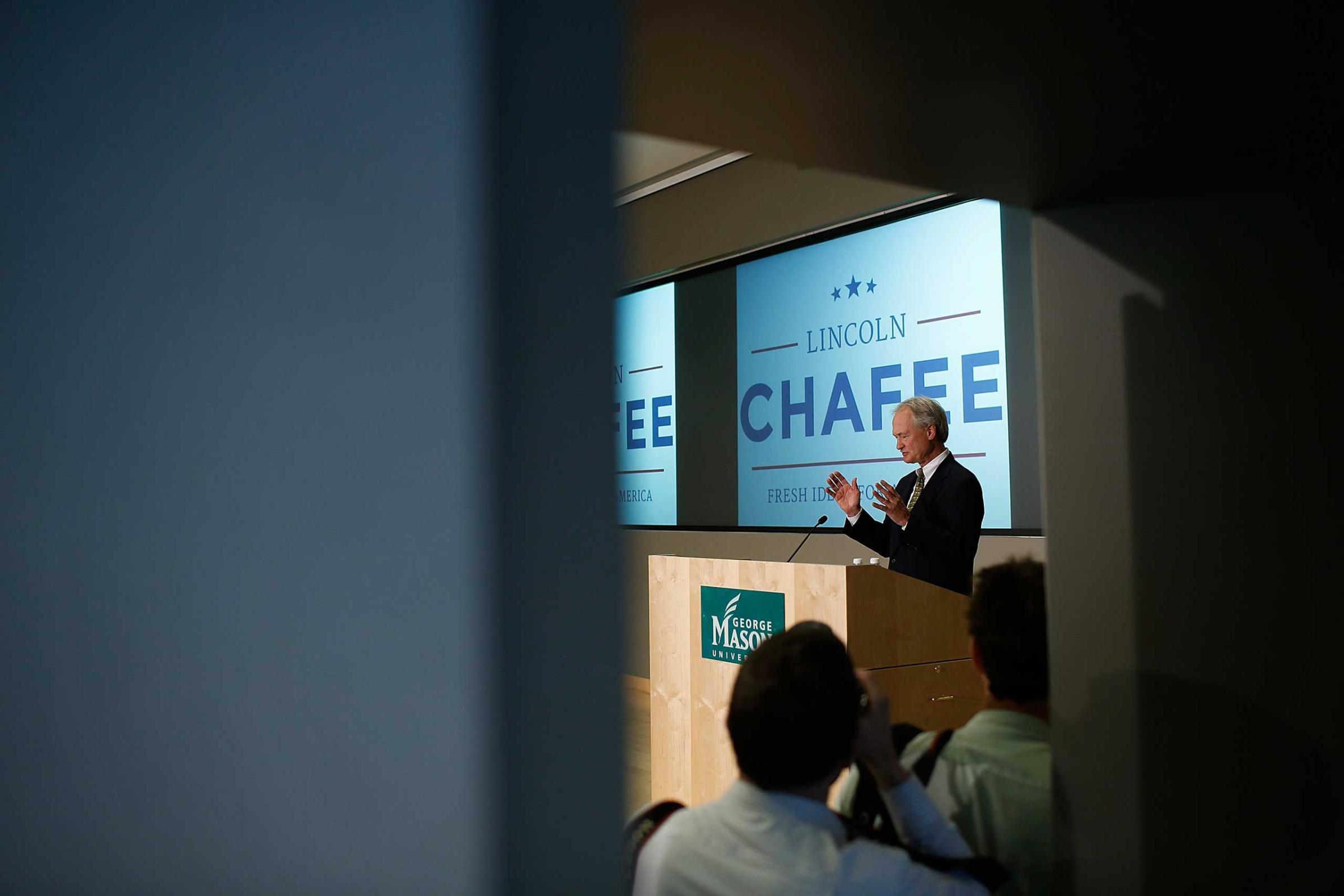
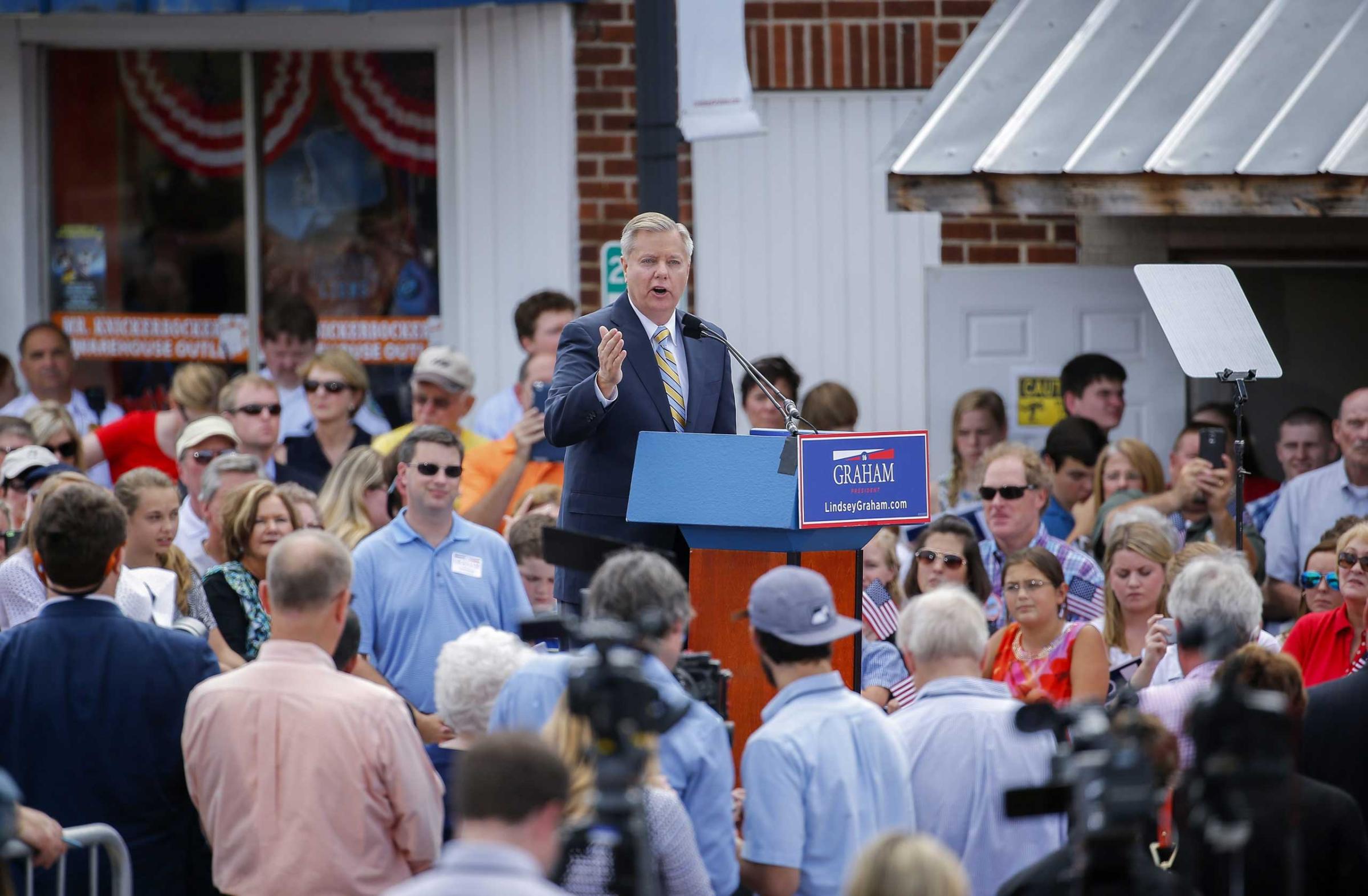
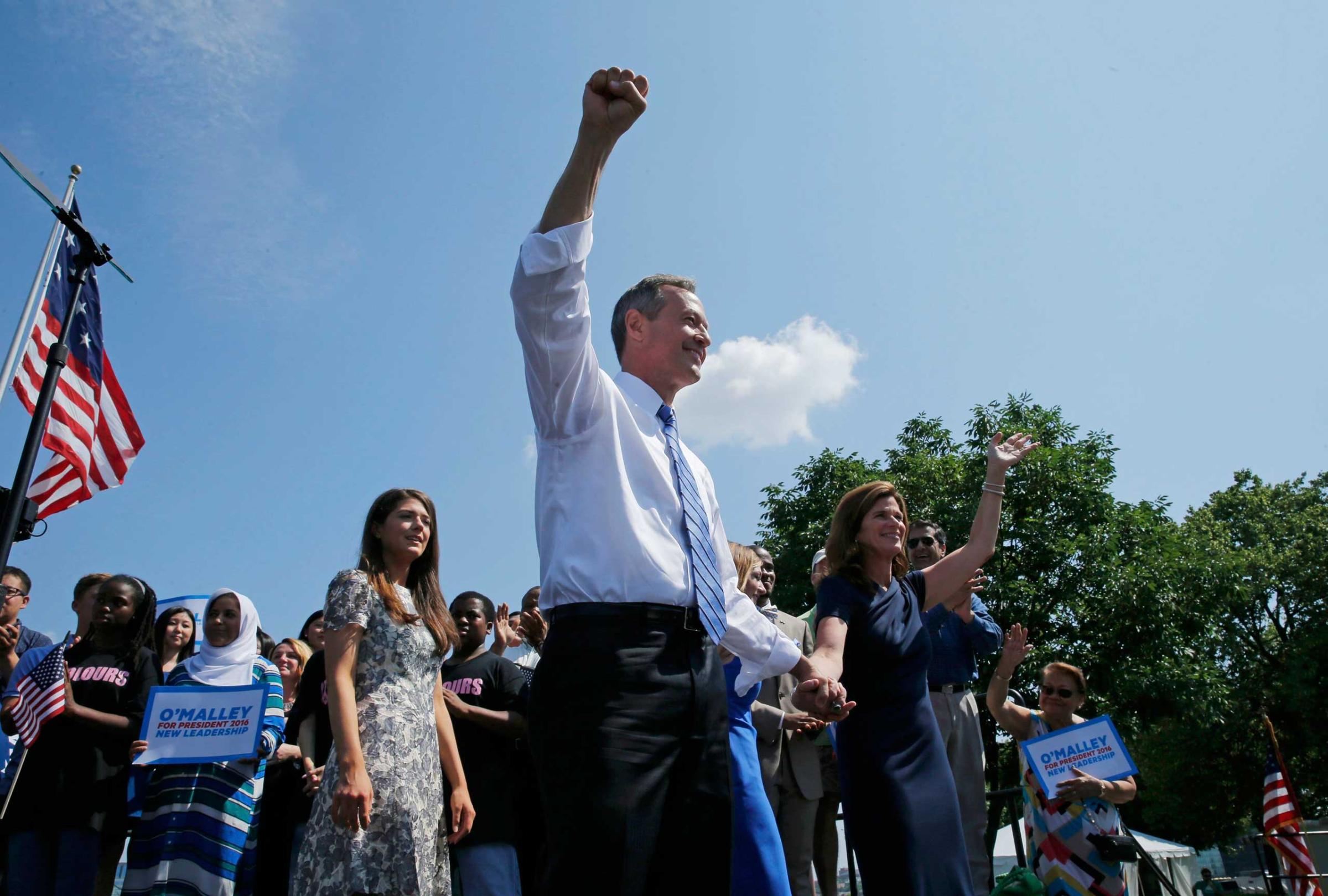
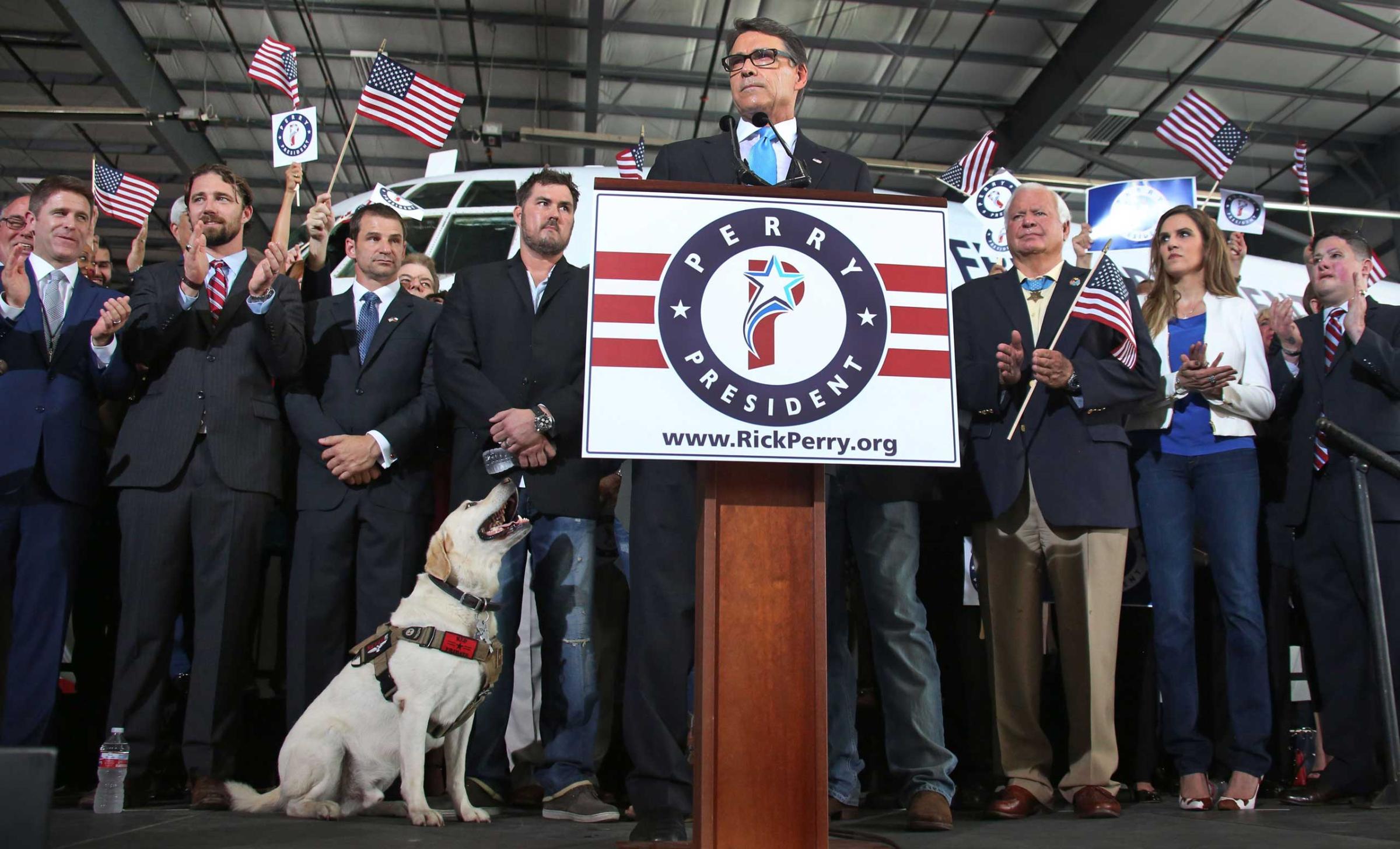
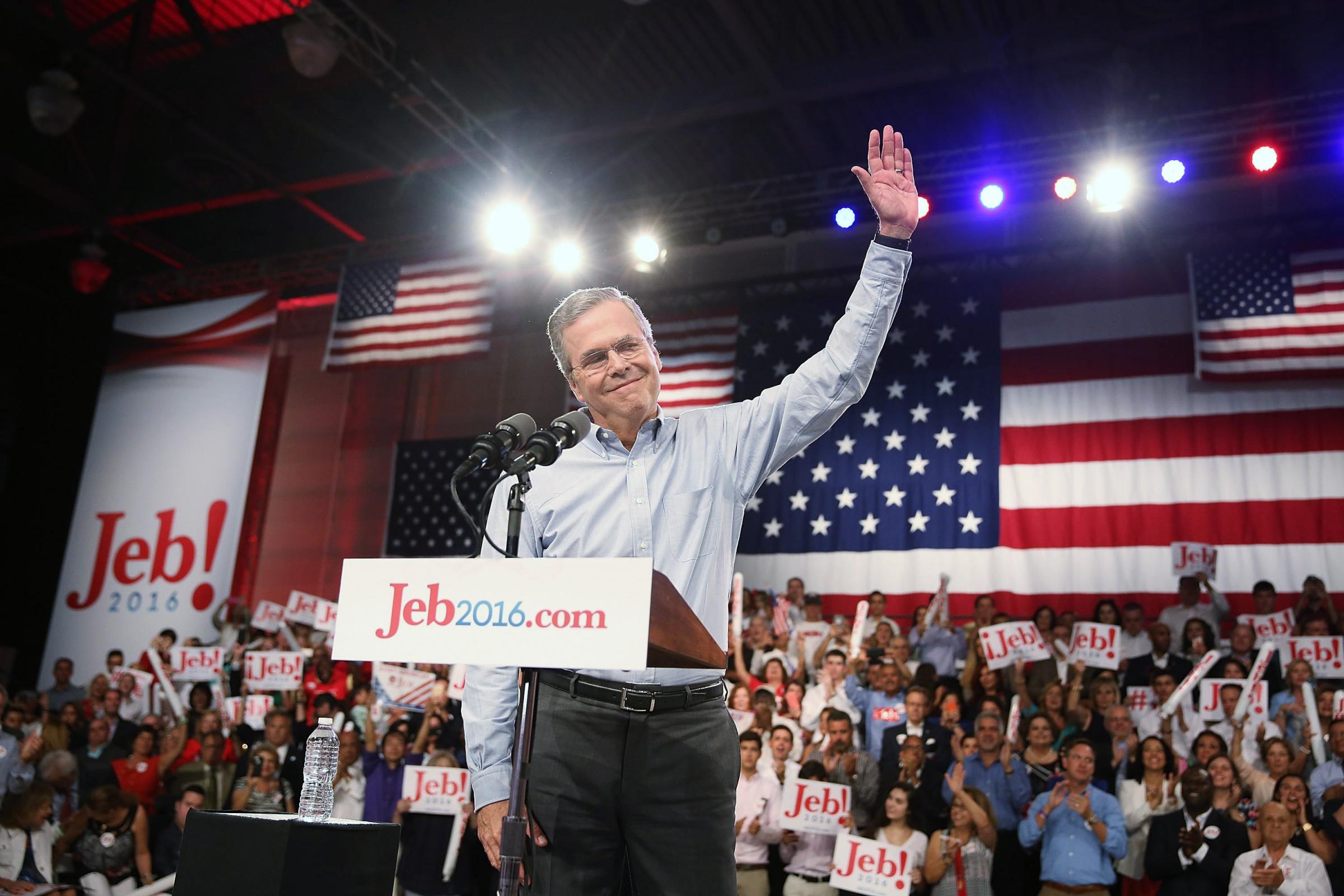
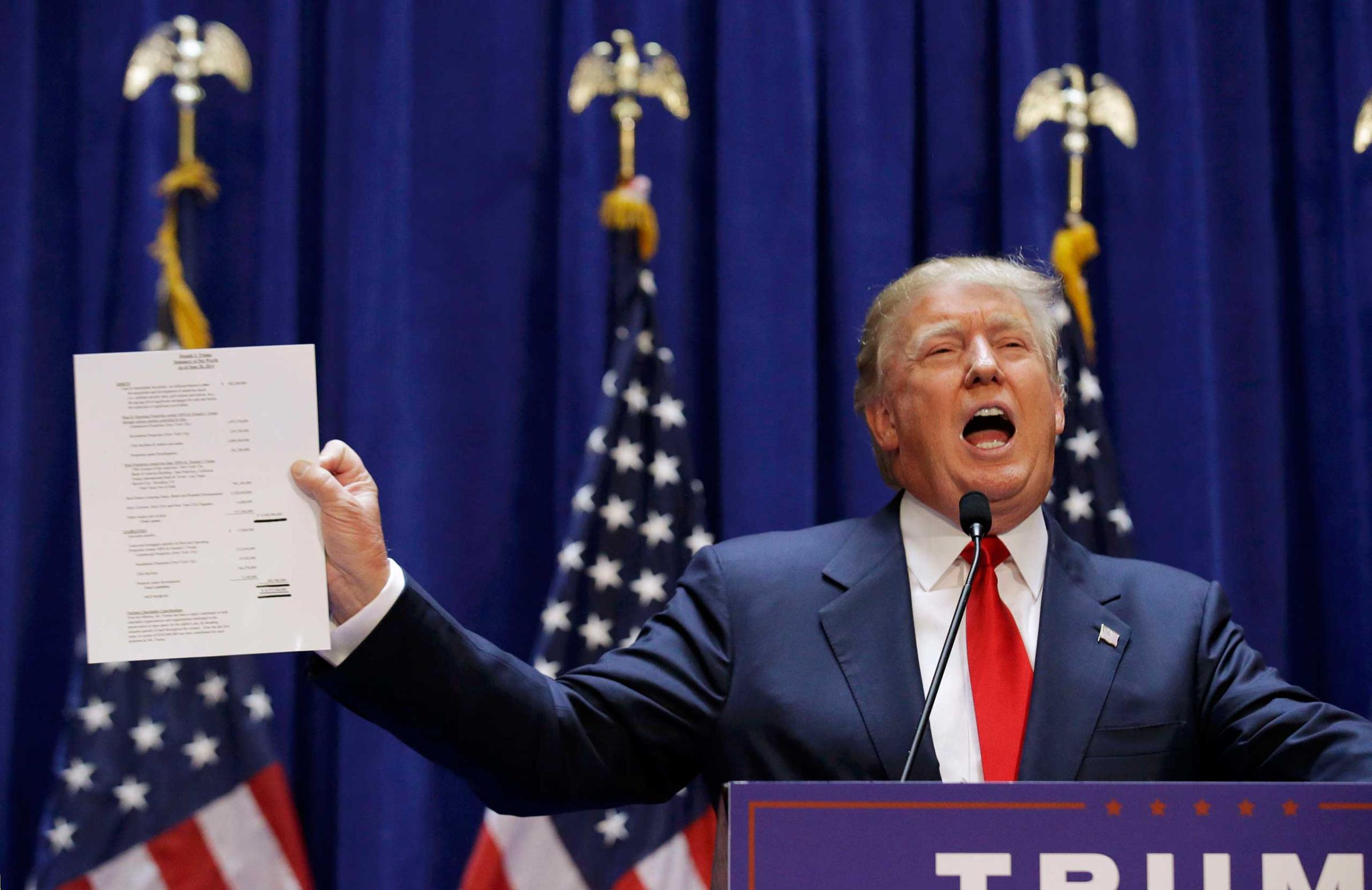
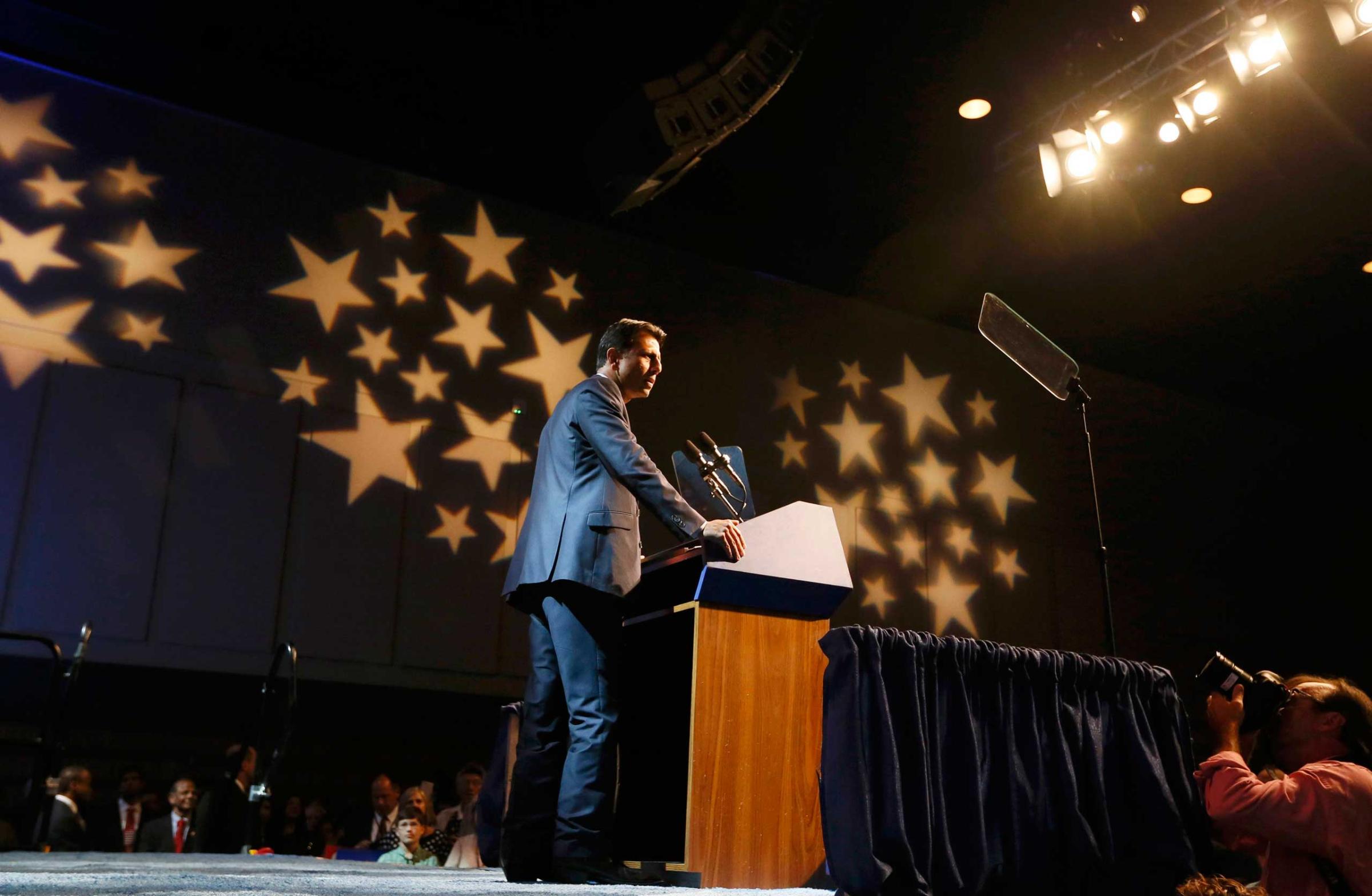
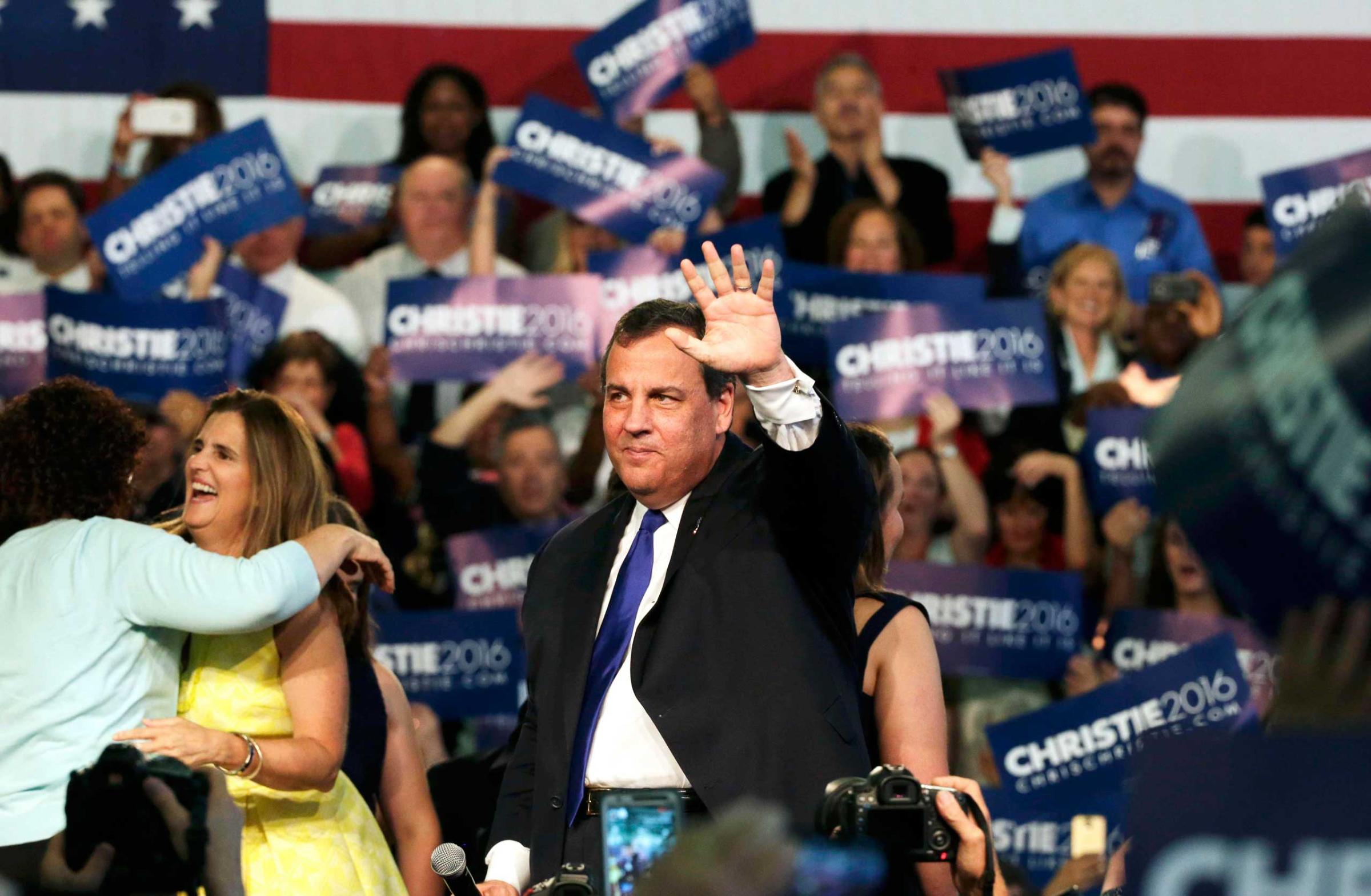
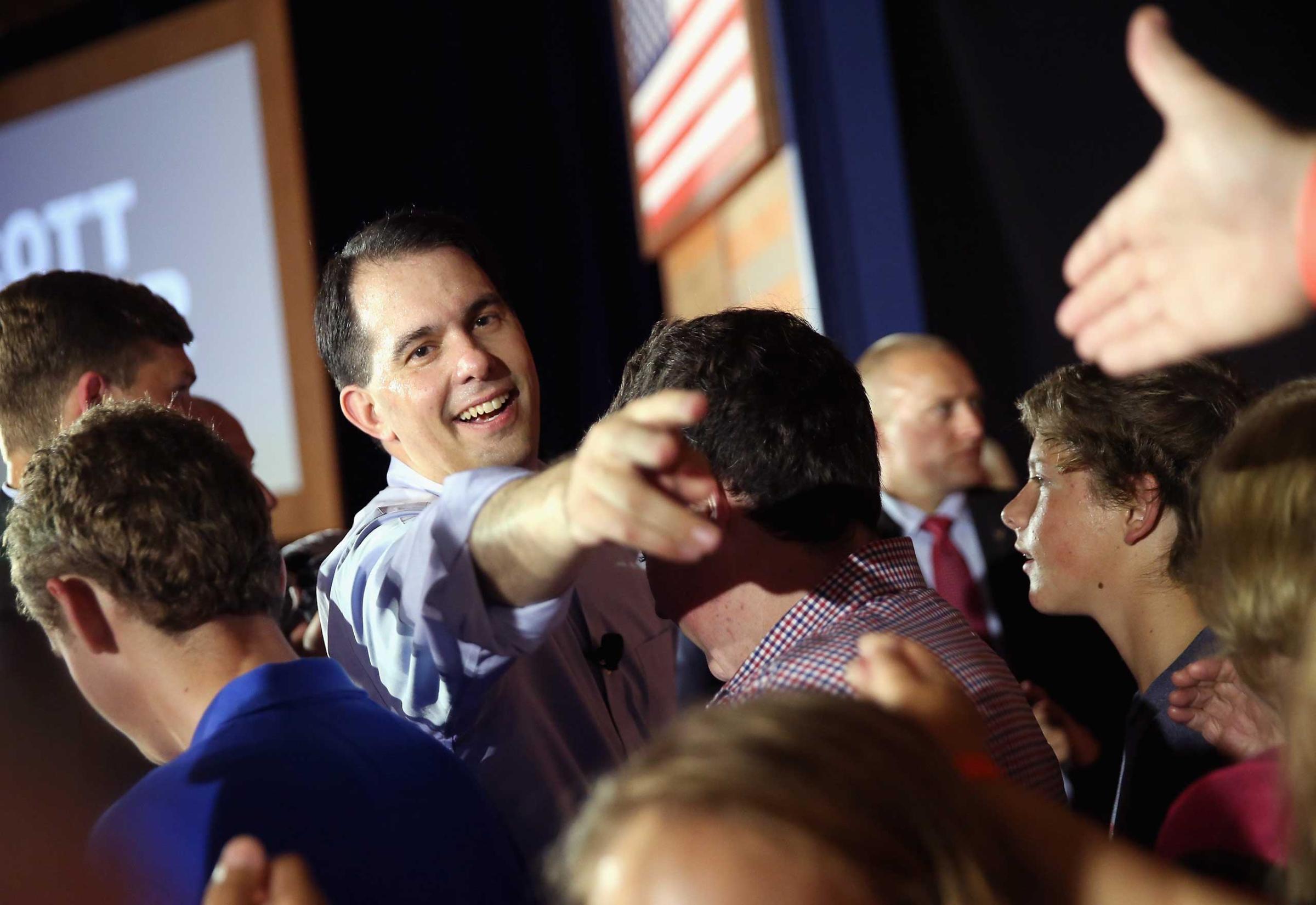
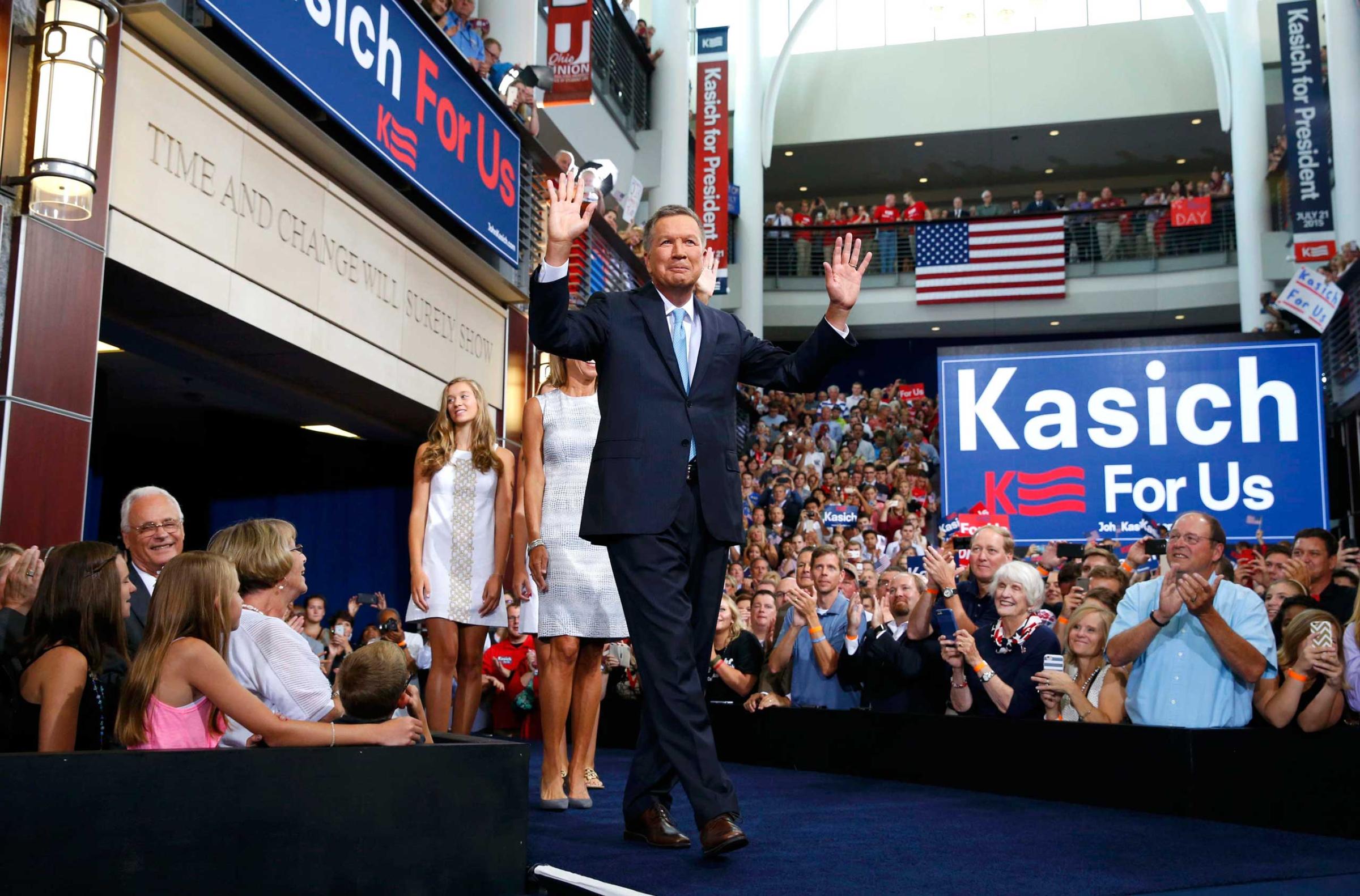
An option that is off the table is trying to keep Trump off the debate stage; he is all but certain to qualify if he turns in his financial disclosure on time. The GOP’s governing Republican National Committee voted in May on a resolution in favor of ensuring neutrality in the primary process, and the Party and television networks would find themselves afoul of campaign finance rules if they tried to keep a qualified candidate off stage.
And while there is a risk that he will overshadow or diminish the rest of the field, it might not be the worst thing for the other candidates. “We see beating up on Trump on the debate stage as an opportunity,” said an aide to one candidate, who like most of the GOP field, complains that Trump is only a factor because of the press. “It’s a media-generated story, since they’re giving him this platform and going around asking everyone about it everyday.”
Others worry that Trump’s presence on stage will make the entire field appear smaller by association. GOP poobahs are encouraging candidates to get in Trump’s face, no matter the cost.
“When Donald trump speaks about Hispanics, if I’m the smart Republican that stage, I’m going to rally and defend Hispanics and be their voice and become their champion,” says Ari Fleischer, the former Bush White House Press Secretary who co-authored the party’s 2012 autopsy calling for more outreach to Latino voters.
“My advice to Republican candidates is to say the truth: “Trump is not representative of the Republican Party. He doesn’t reflect our values and isn’t focused on the best interests of the country or the party.” And then they’ll have no reasons to answer Trump questions again,” said Tony Fratto, the managing partner at GOP firm Hamilton Place Strategies and a former Deputy White House Press Secretary in the Bush 43 administration.
On Saturday, Trump will travel to Arizona, a hotbed for the nativist immigration sentiment that Trump has sought to capture, to further speak about the southern border. On Thursday, a spokesperson said that the venue had been moved to the Phoenix Convention Center in anticipation of a crowd of “thousands.”
There he will continue to try to square his current positions with some of his past statements. Ironically after the 2012 election, Trump said that Romney had chased Latino voters away by with a “crazy policy of self-deportation, which was maniacal,” and suggesting that he backed a path to legal status for those in the U.S. illegally.
Now Trump is occupying headlines by defending saying that many immigrants from Mexico were “rapists,” and citing contrived statistics about the number of people in the U.S. without legal status. He has proclaimed Florida Sen. Marco Rubio “extremely weak” on immigration and suggested that former Florida Gov. Jeb Bush was compromised on the issue because his wife is Mexican-American.
“Do I regret it? No, I don’t regret it,” Trump told CNN of criticizing Columba Bush. Jeb Bush later called Trump’s claims “ludicrous.”
Trump now threatens to upend a years long and multi-million dollar effort by the Republican Party to make inroads with Hispanic voters, an effort RNC Chairman Reince Priebus has called essential to the party’s survival as a long-term political force. On Wednesday, Priebus phoned Trump to nudge him to tone down his rhetoric, focusing on the party’s efforts to win over Latinos, but the message fell largely on deaf ears, with Trump proclaiming that the chairman called to “congratulate” him on his success in the polls.
In many ways, Trump is a problem of the GOP’s own creation. A generation of party leaders and candidates has overlooked the bluster as they sought out his entertainment, endorsement, and checkbook. “Many of us have seen Trump for what he is for a long time, and have been concerned with the willingness of Republican leaders to tolerate him for really convenient, myopic reasons,” says Fratto.
Trump’s public prescriptions for the border, international trade, and foreign policy, if not his actions, have found a following in the overly-nationalistic and protectionist wings of the Republican Party that were once captivated by former Alaska Gov. Sarah Palin and the tea party, and marshaled by the GOP to retake the House in 2010. His rise has cut into the polling support for Sen. Ted Cruz, which explains why he is alone among Republicans in defending Trump.
For years, Trump has been a staple on the GOP’s rubber chicken dinner circuit, appearing at state conventions and party fundraisers. They tolerated his endless “birther” critiques of Obama, because his celebrity and entertainment value filled seats. As he worked to secure his nomination in 2012, Mitt Romney embraced Trump in an press conference in a ballroom at the Trump International Hotel and Tower in Las Vegas.
“There are some things that you just can’t imagine happening in your life, and this is one of them,” Romney said after Trump’s introduction. After he finished lavishing praise on Trump, the pair shared an awkward handshake, in which Romney declined to look toward the assembled photographers.
Months later, Trump hosted a fundraising reception for Romney at the same hotel, and the GOP nominee’s campaign ran a “Dine with The Donald” fundraising contest, in which the winner would tour the Celebrity Apprentice boardroom, stay at the Trump International Hotel & Tower in New York, and sit for a meal with Romney and Trump.
After the last three weeks, the 2016 Republican nominee for president, assuming Trump does not win, is unlikely to do the same.
Photographing the Presidential Campaign With an iPhone 6
















Read next: 18 Republicans Donald Trump Has Insulted
Download TIME’s mobile app for iOS to have your world explained wherever you go
More Must-Reads from TIME
- Cybersecurity Experts Are Sounding the Alarm on DOGE
- Meet the 2025 Women of the Year
- The Harsh Truth About Disability Inclusion
- Why Do More Young Adults Have Cancer?
- Colman Domingo Leads With Radical Love
- How to Get Better at Doing Things Alone
- Michelle Zauner Stares Down the Darkness
Contact us at letters@time.com